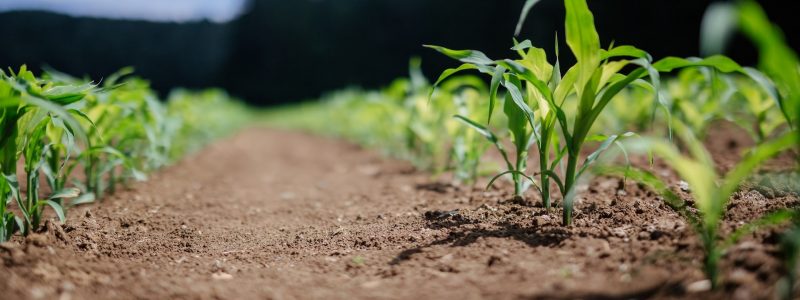
Rural Media Icons
Induction as a Rural Media Icon is the highest honour bestowed by RMC SA/NT.
Rural Media Icons are inspirational individuals held in admiration by peers for high levels of professionalism, long term dedication and passion for communicating rural issues.
They may be a recognisable front-line reporter or a quiet achiever, who has worked behind-the-scenes to further the understanding of agricultural and rural issues.
People inducted as Rural Media Icons are appointed by the RMC SA/NT Committee on merit - and not necessarily every year.
It is our highest honour and we congratulate all who reach this pinnacle of excellence and success.
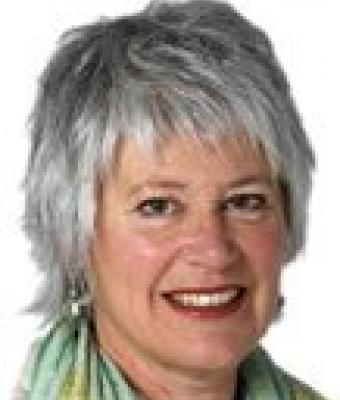
Angela Goode
Columnist for The Advertiser
Inducted 9th May 2008
A columnist for The Advertiser from the early 1980s, Angela Goode broadcast a weekly segment on farm and rural matters for the ABC’s Country Hour and wrote technical stories for agricultural journals. She is also an accomplished author having written several books which draw on her rural knowledge. Her books include For Love of the Land, Great Working Horse Stories, Great Australian Working Dog Stories, Top Dogs and Through the Farm Gate.
Born into the genteel culture of post-war 1940s Adelaide, relishing all the privileges of city life her lifestyle changed dramatically in 1981, when as a new bride, she was whisked away to the country by her Roseworthy educated husband. Now country and city differences, rural politics and lessons from the natural world fascinate her, and Angela’s real-life existence running a sheep and cattle property near Naracoorte exposed her to the vagaries of weather, market forces and rural-town social pressures.
As a campaigner for the genuine welfare of farm livestock, the pro-Euthanasia lobby holds her up as a hero for writing about comparisons with the intolerable plight of terminally ill people.”
Angela rides, paints, travels frequently, studies the endangered bush stone curlews on her farm and rejoices when they breed.
Angela Goode’s career in the rural media is a true inspiration to others and is truly deserving of her induction as a Rural Media Icon.

Jon Lamb
Jon Lamb Communications
Inducted 22nd October 2009
Jon Lamb worked across the mediums of radio, television and print. He also branched out into corporate and industry communications.
Originally destined to be a 4th generation apple grower on a property in Victoria, Jon says “he had the good fortune to escape”.
Jon attended Burnley Horticultural College in Melbourne, then in 1966 joined the ABC as a 22 year old.
He was based at Renmark as the ABC Rural Officer in the Riverland.
The initial stint with the ABC lasted 12 years, however Jon is still very much associated with the ABC through the long running Saturday morning “Talkback Gardening” radio program.
After the ABC, Jon became Press Secretary for two Ministers of Agriculture, Tom Casey and Brian Chatterton.
He then moved to the Stock Journal as a print journalist, picking up a Stock Journal scholarship to study in the USA.
While on that trip, he interviewed President Ronald Regan on a 1-on-1 basis in the White House, but had the interview hastily curtailed after asking one-too-many hard questions.
In the 1980’s, Jon went out on his own and formed “Jon Lamb Communications”.
Jon Lamb has won awards for excellence in journalism.
The GRDC honoured him with a “Seed of Light Award” for outstanding communication in research.
In 1990, he won the Dalgety Award for written journalism, with a series of investigative articles highlighting “The Departure of Agriculture in Crisis”.
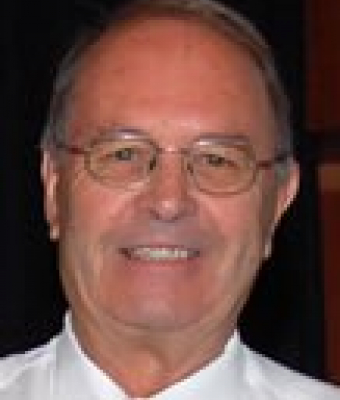
Richard James (♦)
Former Stock Journal editor and livestock writer
Inducted 28th November 2010
Dick started with the Stock Journal in January 1954. At that time the publication was known as the Adelaide Stock & Station Journal and he worked in the classified and auction advertisement section for a short time. He then took on a role of assisting the advertising manager in the display advertisement dept.
Just prior to Dick’s seventeenth birthday, the advertising manager took two weeks annual leave and Dick was given the responsibility of handling his work during the period of absence. It wasn't long before Dick was invited to start his career in rural journalism as a cadet. About three years later they gave Dick the title of Field Representative and at age 24, he was handed his first managerial role as assistant editor - in 1964.
Dick was appointed editor of the Stock Journal in 1976 and was managing editor from 1985-1987. In 1998 he decided to take a short break, but was invited back by the Stock Journal proprietors to take over as livestock editor. Dick relinquished that role in late 2001 to provide an upgrade for a younger man.
Dick James won several journalism awards, having entered livestock feature articles in both the National Australia Bank and Telstra awards.
Because of Dick’s obvious specialisation in livestock reporting as a rural journalist, he was asked to judge both stud and commercial stock over the years, as well as open several of the major stud sales in SA.
He also served as Executive officer of Merinos SA.
Dick remained a working journalist until his retirement in July 2003.
Ian Doyle
To be a Rural Media Icon is much more than simply being a good journalist or media proprietor. A Rural Media Icon is really part of the very fabric of the industry – because of their personal qualities and focus on others, a Rural Media Icon adds to the texture, flavour and quality of the broader rural media world we live in.
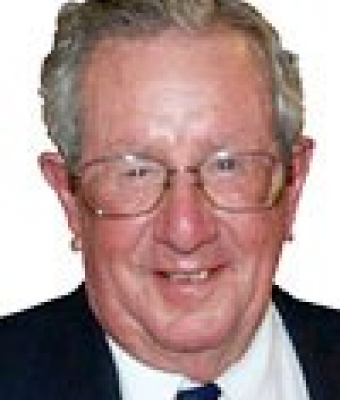
Norman Marston
A lifetime in Regional Newspapers
Inducted 28th October 2011
Under Norman Marston’s leadership, The Courier at Mt Barker has become recognised as the benchmark of country newspapers in South Australia and among the very best in Australia.
The Marston family has one of the longest histories in family newspaper ownership in Australia and its ownership of The Courier spans four generations;
When the family purchased The Courier in 1952, Norman Marston served as its production manager. Prior to this, Mr Marston was a journalist with one of his family’s other newspapers in Burra;
In 1966 Norman and his late brother took over management of The Courier from their father, with Norman’s primary focus remaining on the production side of things.
Norman’s input to The Courier and passion for the ethos of country based newspapers has lasted nearly 60 years;
Norman's sons, Kym and Bruce are the third generation family members at The Courier, with Kym editing the paper during the 1980s and 1990s;
The fourth generation at The Courier is Norman's grandson Steven.
During Norman Marston’s six decades with The Courier, the paper changed immensely in its size, quality and circulation. In 1953 the paper was eight to 12 pages in size, with a circulation of around 1900 copies. By 2005, the paper averaged more than 76 pages a week with around 15,000 copies printed.
Norman Marston’s 60+ year contribution to rural and regional media in South Australia is unequalled. His legacy remains to steer the course of one of the few remaining family owned regional newspapers in this country.

Alan Richardson
ABC Rural Journalist and Broadcaster
Inducted 17th October 2012
Alan began his career with the ABC in 1982 as a trainee rural reporter.
He was deployed to Orange in New South Wales as the temporary, acting rural reporter where he stayed for three years covering a vast slab of the state reaching all across the Western Plains.
Here, he developed a lasting taste for long days on the road with his microphone and a recorder that was probably the size and weight of a large brick.
When veteran rural reporter Peter Collins resigned from his post in Mount Gambier, Alan seized the opportunity to come back to his beloved South East.
He stayed in Mount Gambier for five years doubling as the breakfast presenter where he was often seen driving around the countryside in search of a good yarn.
After a brief stint in Sale, Victoria, Alan was recruited to Perth as the Western Australian Rural Executive Producer.
Packing up their young family, Alan and Denise left Mount Gambier for an adventure out west with children Vanessa, Colin and Belinda.
Alan stayed in Perth for seven years where he was running the rural ship, presenting the Country Hour and dabbling in talkback.
While he grew very fond of life out west, Alan felt the tug of his beloved South East once more.
Leaving Denise and his children behind for one year to see-out Colin's Year 12 schooling, Alan came back to Mount Gambier where he has stayed until retirement.
Seeing many young journalists come and go, Alan has acted as a mentor, father-figure and inspiration.
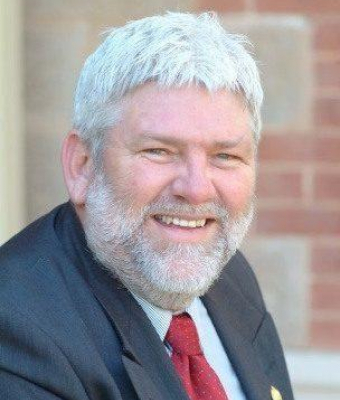
Ian Doyle OAM
Former ABC Rural Journalist and rural industry communicator
Inducted 18th October 2013
Ian Doyle came to SA in 1981 as a raw ABC rural radio recruit from North Queensland.
Ian pursued studies at James Cook University, graduating with a Degree in Economics and then studied at the University of Queensland, graduating with a Diploma of Education.
He went teaching at a college in Charters Towers, until one day ABC television’s rural department came to town and Ian was asked to assist with the mock-up of a close-up visual effect.
The bug had bitten and Ian knew his life was destined to be up-front, in the rural media and with the ABC.
In 1981 he applied for the position of Rural Officer with ABC Rural Radio at Port Pirie, about as far away from North Queensland as you can get, both physically and agriculturally. Ian was now living in the land of wheat and sheep, rather than pineapples and sugarcane.
Wife Jane was at Ian’s side throughout his time in Port Pirie and has been ever since.
Later that year, Ian left Port Pirie and headed down to the big-smoke in Adelaide to take up a more senior role with ABC Rural.
Ian has fronted the ABC Country Hour, reported for Landline and Countrywide television, hosted the nationally broadcast Australia All Over radio program on Sunday mornings, managed the ABC Rural Department in South Australia and has acted in the role of national boss of ABC Rural.
He’s produced internationally renowned feature television pieces on subjects such as river boats, tuna boats and an outback postman.
He was President of Rural Media South Australia from 1987 until 2019. His intensity of effort and foresight of industry trends did a lot to assist other rural journalists for nearly three decades.
Ian left the ABC for greener pastures in 1997, to run Doyle Media Services, providing a diversity of rural media, communications training and event management services.
He was recognised for his contributions to rural media with an Order of Australia Medal in the 2021 Queens Birthday Honours List.
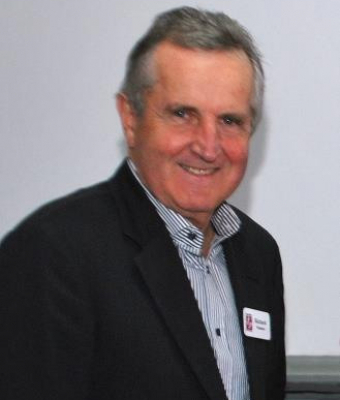
Richard Fewster
Rural Journalist, Communicator, Manager & Rural Media Advocate
Inducted 28th October 2015
Richard Fewster came off a fruit block at Renmark and excelled in the practicalities of life outside of the lecture theatre at Roseworthy.
In fact, as a practical horticulturalist, he won the T.G.H. Buring Prize in Horticulture during his second year at Roseworthy and the Rudi Buring Prize for Practical Horticulture in his third and final year.
Richard graduated from Roseworthy Agricultural College with a Diploma in Agriculture in 1965.
After graduating, Richard initially spent eight years as a working journalist with the weekly agriculture paper, The Chronicle and the daily paper, The Advertiser.
While with these papers, Richard introduced and ran the SA Farm Innovation Competition.
There is no doubting the experience of reporting for The Chronicle and The Advertiser blooded Richard for a 50-year career in the media and as one of the nation’s leading rural communications and public relations experts.
Shortly after leaving The Advertiser, Richard set up his own public relations business and was commissioned to write a series of books including the history of B. Seppelt & Sons, Grain Handling in South Australia for SACBH, and the history of the Australian Medical Association in SA.
As his rural communications company grew, Richard started handling media initiatives for an increasingly broad range of rural companies and agriculturally based organisations.
He led the development of many technology transfer programs, including Horticulture for Tomorrow, and initiatives for the Grains Research and Development Corporation.
Other programs which fell into this category included Landcare Australia, and the Federal Government’s Save the Bush program.
In all cases, the work involved understanding new technology and developing communication programs that primary producers would understand and embrace.
Many of these programs were taken up on a national basis, targeting people living and working in rural and regional Australia.
He worked on many international marketing campaigns and, as head of global marketing for Turnbull Fox Phillips’ (later Porter Novelli’s) international public relations network, gained considerable knowledge of issues facing agricultural organisations wanting to market themselves or rurally derived products on a global basis.
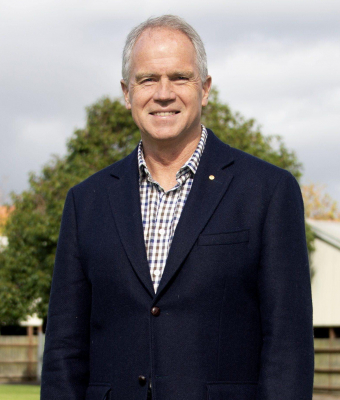
Leigh Radford OAM
ABC Rural Journalist, Broadcaster, Executive Manager and International Rural Media Advocate
Inducted 9th December 2016
The decades since Leigh commenced his media journey in 1988 have been marked by contribution and achievement.
He was the most senior member of the Australian Broadcasting Corporation’s executive management team to have ever been based in Adelaide, having managed the largest rural media broadcast group in the world.
And Leigh has been responsible for shaping the careers of many of today’s top rural journalists, including a number who have gone on to become internationally renowned Foreign Correspondents.
Leigh Radford has made his mark on the international stage, representing the entire Australian rural media sector, private and Government, as the Australian delegate to the International Federation of Agricultural Journalists.
He has travelled extensively overseas to represent our national interest, convening the judging panel of the world broadcast rural media awards and influencing rural media policy internationally.
Leigh Radford graduated from the University of Adelaide with a Bachelor of Arts – Bio Geography, with a major in English.
He’s worked as a storeman, truck driver and in a potato processing factory.
He toyed with the prospect of spending his life as an Environmental Officer for Western Mining at Roxby Downs.
But in 1988, Leigh was successful in his application to ABC Rural for a trainee position, making him the third generation of Radfords to work at the ABC. His son, Luke is the fourth generation.
After initial training in Melbourne, he was posted to Sale and Horsham as the Rural Officer.
From there he transferred back to South Australia in 1990 as the ABC Rural Officer at 5CK 691 Port Pirie, the town where his father had established the GTS 4 television station and where Leigh had spent a number of his childhood years.
The next move was down to Adelaide as the ABC Country Hour radio presenter and ABC television weather presenter.
In 1996 he rose to become the Country Hour’s Executive Producer.
In 1999 Leigh enjoyed a temporary role heading the ABC’s Rural Department across Australia as National Editor, prior to becoming permanent head of ABC Rural in South Australia.
In September 2016, Leigh was also awarded the status of Honorary Fellow of the Australian Rural Leadership Foundation in recognition of exceptional service and commitment to rural and regional.
And in 2019 he was awarded the Order of Australia medal.
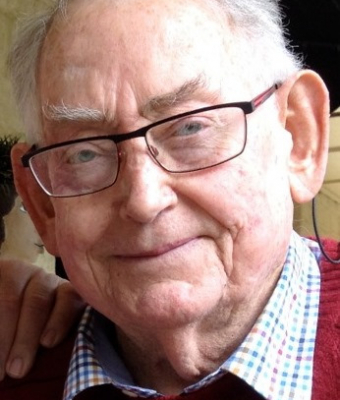
Jim McCarter (♦)
Advertiser Rural Journalist. Inducted on 27th April 2018.
Born at Kadina on South Australia’s Yorke Peninsula in 1937, Jim McCarter’s roots in rural journalism come from a period very few people today have experienced. Following completion of his education at Urrbrae Agricultural High School, he obtained a position as a cadet journalist with the Advertiser’s rural publication, ‘The Chronicle’ in 1954.
In the early 1960’s, Jim expanded his role as a rural journalist at ‘The Chronicle’ by broadcasting agricultural stories on the Advertiser Broadcasting Network’s statewide radio stations 5AD, 5PI, 5MU & 5SE in a program called ‘Life on the Land’.
Jim McCarter became Editor of ‘The Chronicle’ in 1969, a role he held until the Advertiser decided to close that publication in 1976. He then took up the position of Rural Editor at the Advertiser in an effort to maintain the communication of rural and agricultural content to that publication’s statewide readers. His weekly “On The Land” section epitomised quality rural journalism and was a much anticipated read for many regional and metropolitan people.
A highlight of Jim’s career at the Advertiser was convincing the management of that publication to become official sponsor of the Yorke Peninsula Field Days, something very close to his heart. In recognition of his long service to the YP Field Days Committee, that body awarded Jim with Life Membership.
After 38 years reporting rural issues to South Australians, Jim McCarter retired from the Advertiser in 1992.
Jim McCarter left a number of lasting legacies to the craft of rural journalism in this state. In addition to establishing the benchmark for quality agricultural journalism and well-mannered communication, he pioneered the formation of Rural Media South Australia in the 1970’s.
Jim served as RMSA President and Secretary for many years, with Honorary Life Membership being bestowed upon him by RMSA as a genuine gesture of its appreciation.
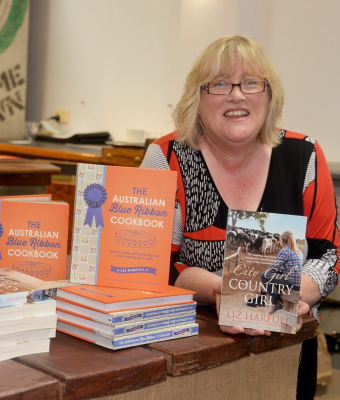
Liz Harfull
Award winning author, Liz Harfull has more than three decades of experience as a journalist, freelance writer and editor.
She has covered an enormous range of issues from technical aspects of farm management practices and environmental management, to more general pieces about food and fibre production in Australia and overseas.
Liz has also written feature stories about life in the outback and rural identities.
She began her career as a cadet journalist on a local newspaper and later worked for The Advertiser and Rural Press, winning a prestigious Dalgety Award for Excellence in Rural Journalism.
She has had freelance stories and photography published in a range of newspapers and magazines in Australia and overseas, including Outback magazine, Australian Dairyfarmer, Australian Dairy News, and The Furrow.
For a number of years, Liz Harfull worked closely with another of our icons of the rural media sector, Richard Fewster.
It was the combination of Richard and Elizabeth that delivered some of the nation’s most influential rural communications campaigns.
Liz was a former president of the Australian Council of Agricultural Journalists, the national umbrella group that meshed together five separate state-based rural press clubs with their overseas counterparts.
For more than 10 years, she served on the executive committee of the International Federation of Agricultural Journalists which represented media and communicators from more than 30 countries focussing on paddock to plate issues.
She was the founding coordinator of a new international award for rural broadcast journalism and responsible for overseeing a range of journalism awards offered on an annual basis to rural media in Australia.
And she is the author or several books relating to rural life, including Tried, Tested and True which was named among the Best in the World in the 2019 Gourmand World Cookbook Awards.
Recently Liz branched out into podcasting with Country Women's Wisdom.
She is a worthy inductee to the honour of icon in the Rural Media sector.
John Illsley
John Illsley had a distinguished career as a Livestock agent in SA, making the effort to qualify as a wool classer, not because he needed to, but because he believed it would provide him with a greater understanding of his clients’ needs.
In 1973 he joined the Rural Press SA office (Stock Journal) as assistant advertising manager to John Mackie, who he then succeeded when stepping up to the manager position soon after.
Along with another of our Rural Media Icons, the late Dick James, John was an integral part of a formidable Livestock team within the rural media sector.
Although John was targeted to be his publication’s General Manager, he declined the many offers because his passion genuinely was with Livestock and that is where he chose to stay.
However, he did fill that General Manager role in an acting capacity on many occasions and there were never any major SA management decisions made within Rural Press that did not have John’s blessing, such was the respect of him held within the National Rural Press board.
Besides management and marketing roles, John also wrote a weekly Livestock column, “Top Line” with news briefs from around the state and industry of importance to rural and regional readers. This was eagerly and widely read by the Stock Journal subscribers.
Through his position in the rural media sector, John was responsible for instigating major state livestock events such as the SA Beef Field Days (with SA Beef), The Royal Farm Expo (with the RA&HS), the Merino Field Days (with Merino SA), the SA Sheep Field Days (Mark 1 with IAMA) and the Sheep Expo (also Mark 1 with the Ag Educators).
John Illsley retired in 2000 after 27 years of dedicated service to the Rural Press, the Rural Media network and Livestock Industry.
He is held in the highest regard by the livestock and rural newspaper fraternities and is a worthy inductee as an icon of the Rural Media sector.